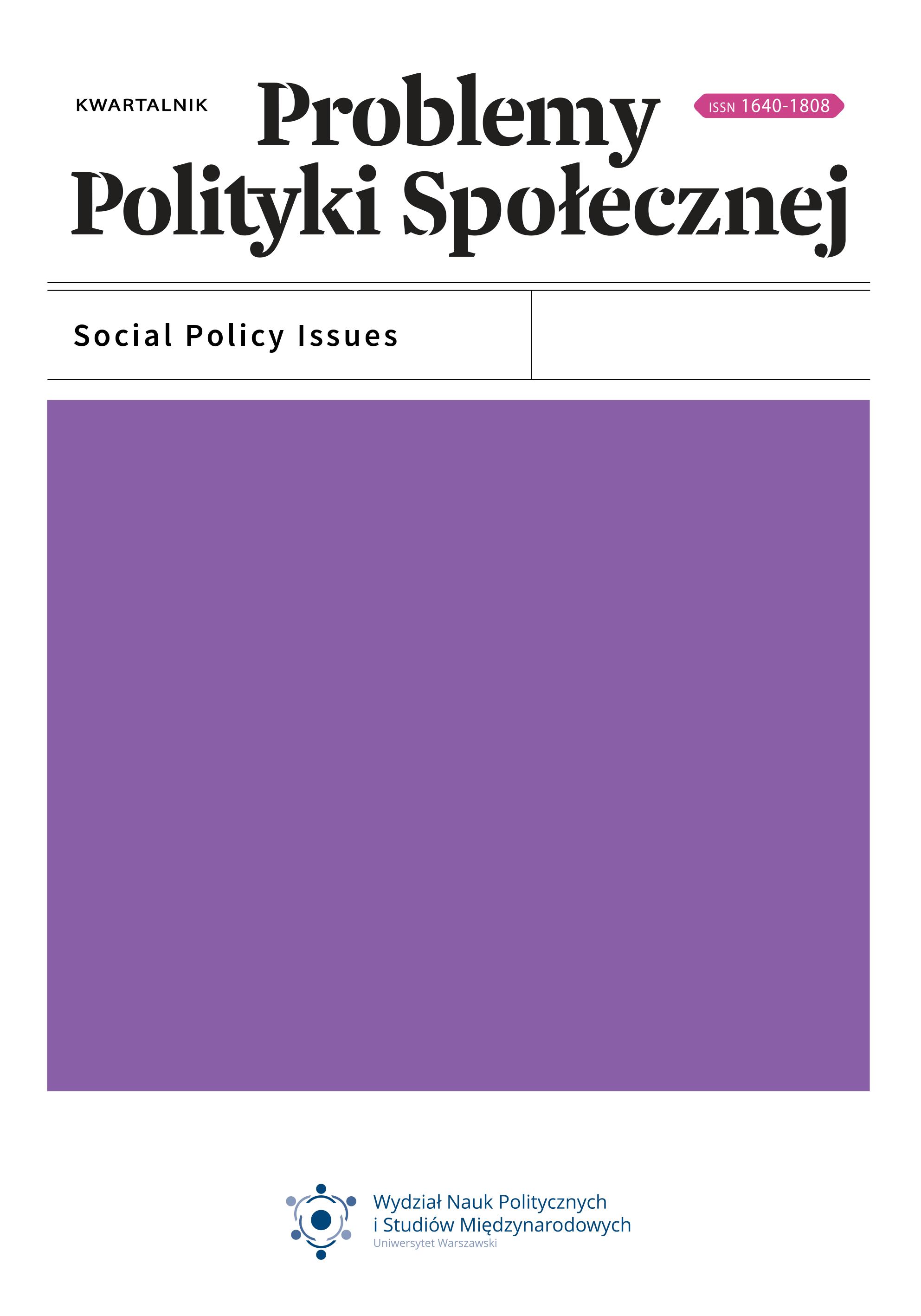On the modernization of poverty. Evolution of the phenomenon
On the modernization of poverty. Evolution of the phenomenon
Author(s): Stanisława GolinowskaSubject(s): Politics / Political Sciences, Politics, Social Sciences, Political Theory, Sociology
Published by: Wydział Nauk Politycznych i Studiów Międzynarodowych UW
Keywords: evolution of poverty in Poland; modern poverty transition; working poor; inequalities; consumerism; sharing economy;
Summary/Abstract: This original article is based on author’s lecture about the evolution of poverty in Poland which was presented at the Congress of Sociologists in Wrocław (09/2019). The generalized description of this complex social phenomenon presented herein is based upon the numerous studies presented in author’s book, “About Polish poverty” (O polskiej biedzie, Wydawnictwo Scholar 2018). It was based on multidisciplinary research, both quantitative and qualitative conducted by many researchers over more than 3 decades, with references to past studies, mostly from postwar period. In the article it is proposed to distinguish between three periods in the evolution of poverty. The first period (post-war late industrialization) was characterized by the great investments of the communist autocratic state to provide full employment which visibly improved the living condition of the working class. However, with time, negative effects of intense industrialization emerged; namely an inefficient centrally planned economy with shortages (queues and rationing, felt to be very onerous) and a devastated natural environment. The second period — transformation of the centrally planned economy into a democratic market economy — initially caused an increase in income poverty and later slowly resulted in growing inequality and social exclusion related to precarious employment and circular labour migration. The third period, its features currently still under development — is a period of both increased prosperity and European integration as well as inequalities related to the diversified benefits of a developed market economy. Poverty in this period is associated with mass consumption and reductions in access to equal and high-quality education, health care, and cultural services.
Journal: Problemy Polityki Społecznej. Social Policy Issues
- Issue Year: 51/2020
- Issue No: 4
- Page Range: 19-34
- Page Count: 16
- Language: English

